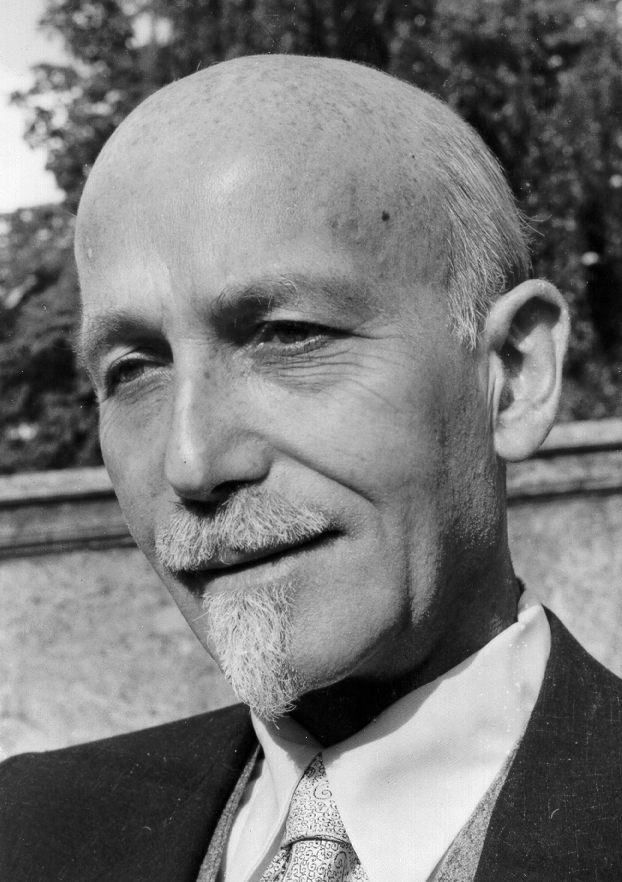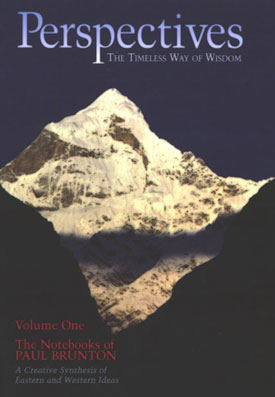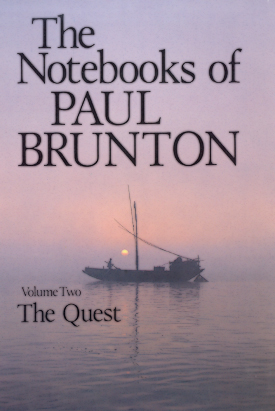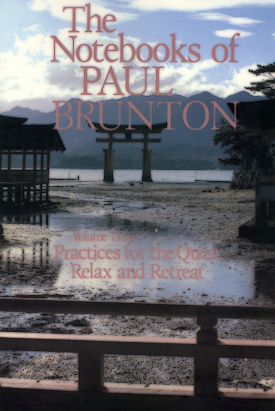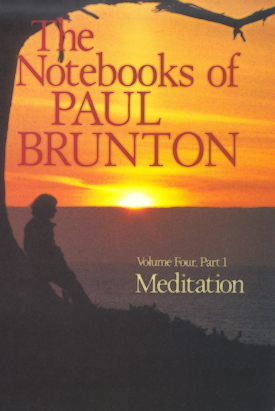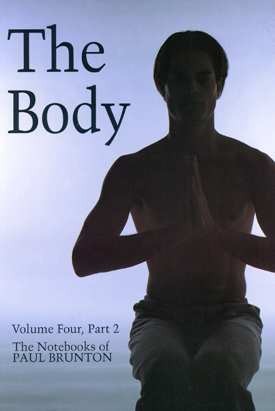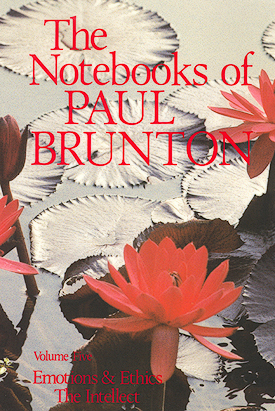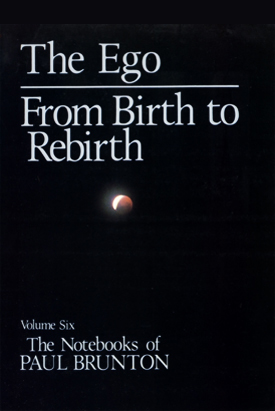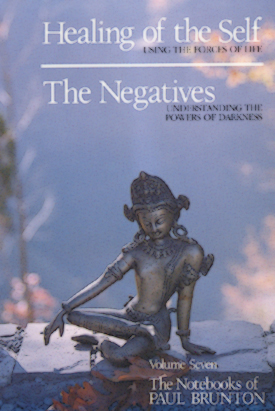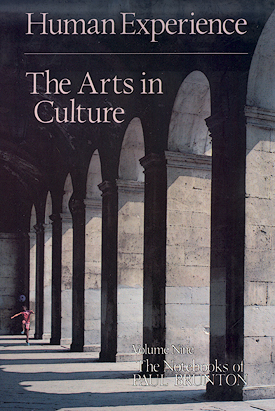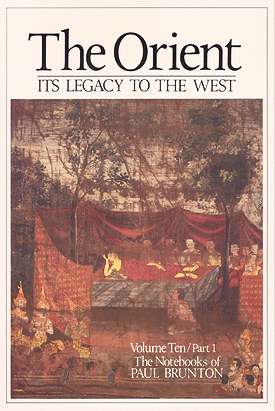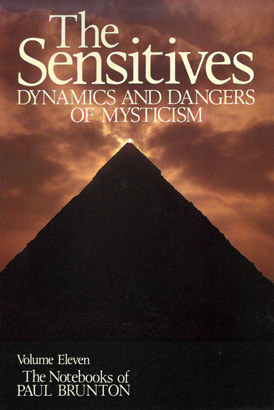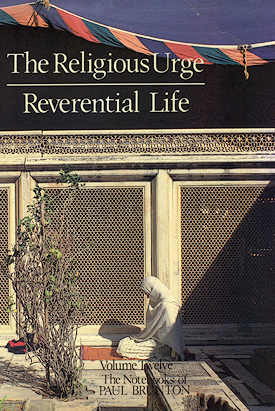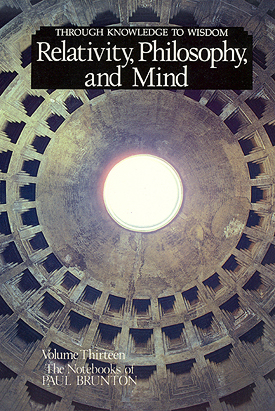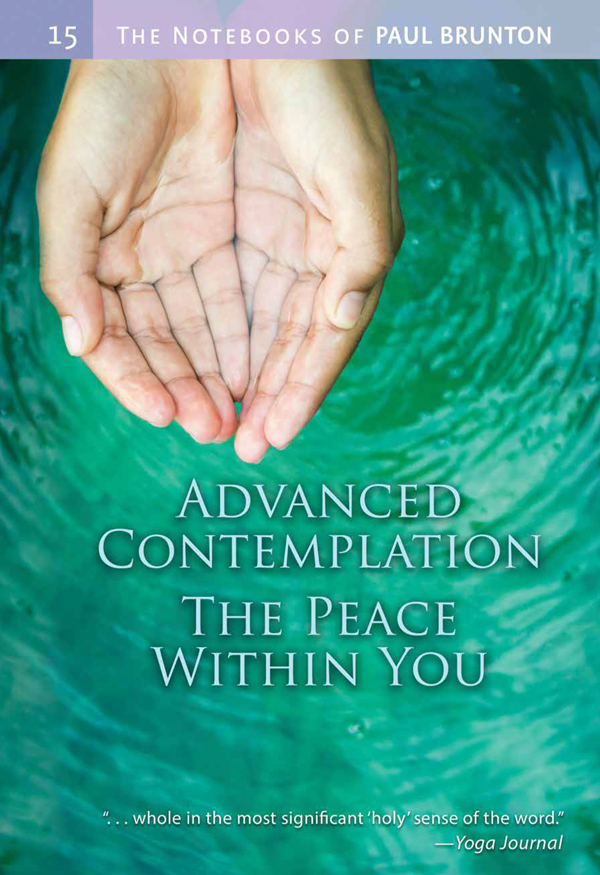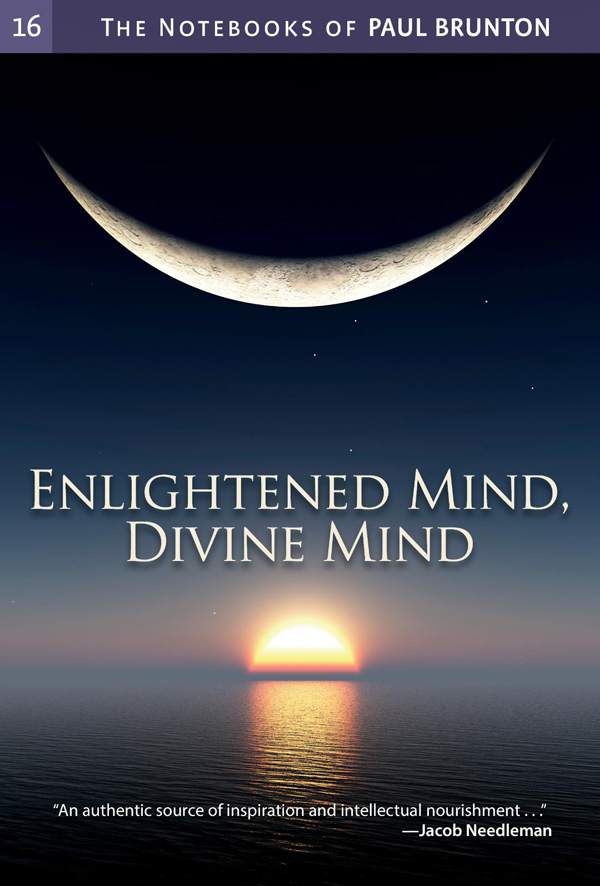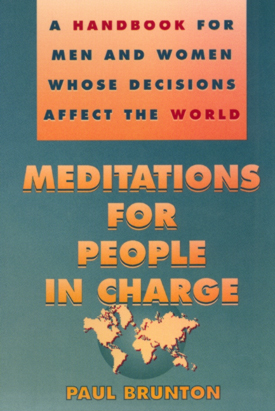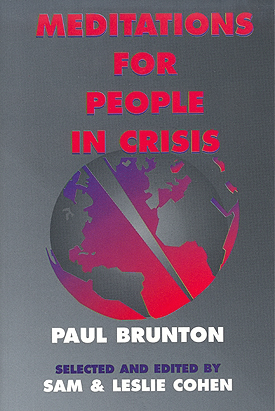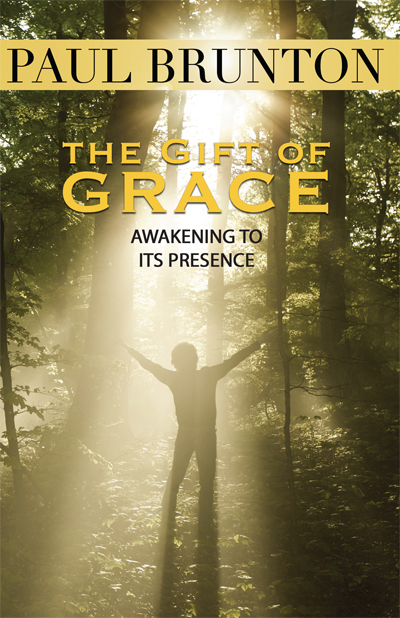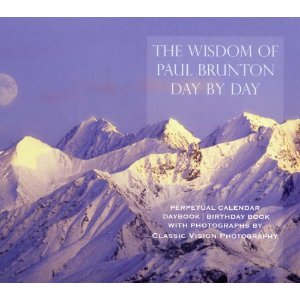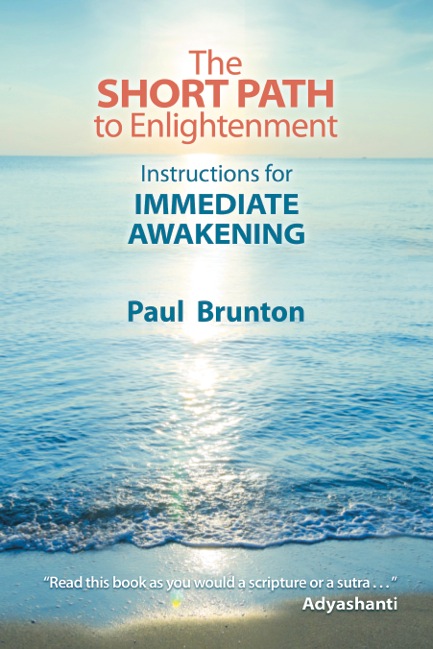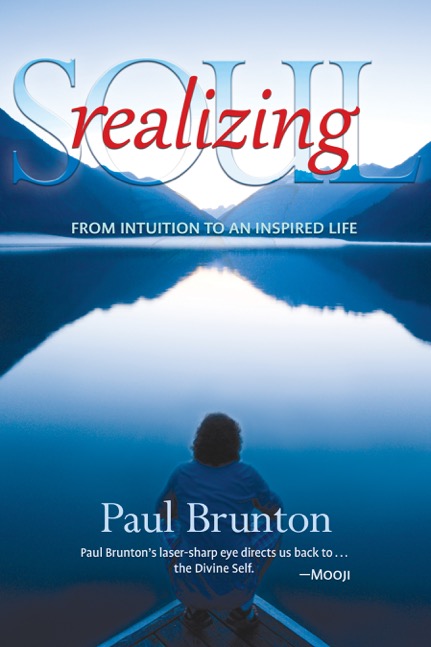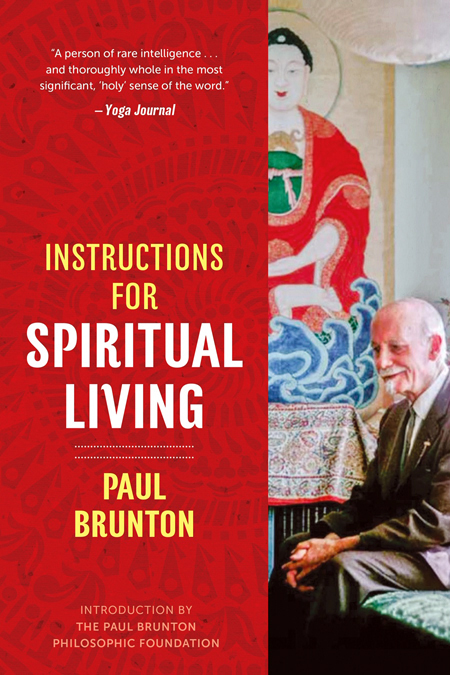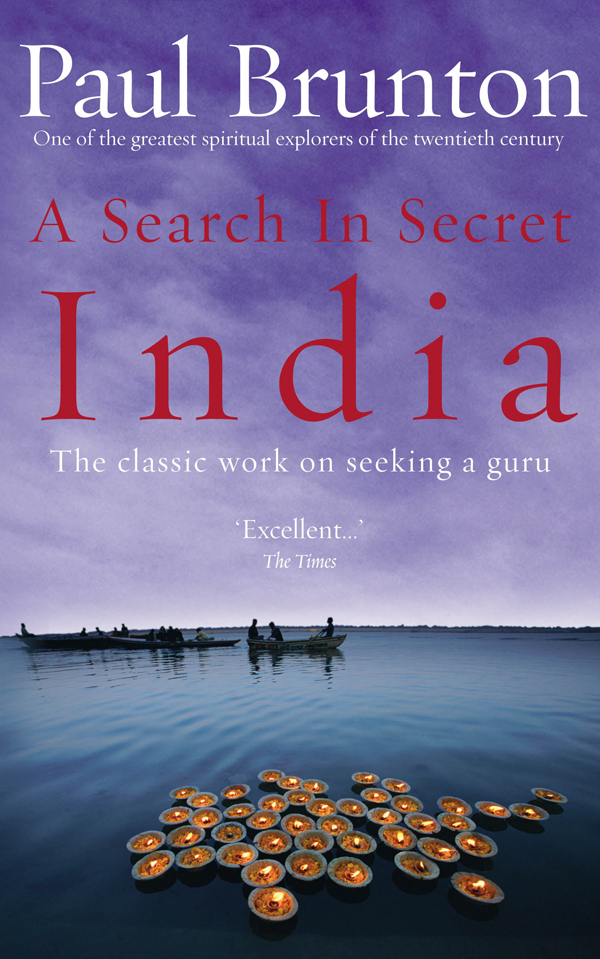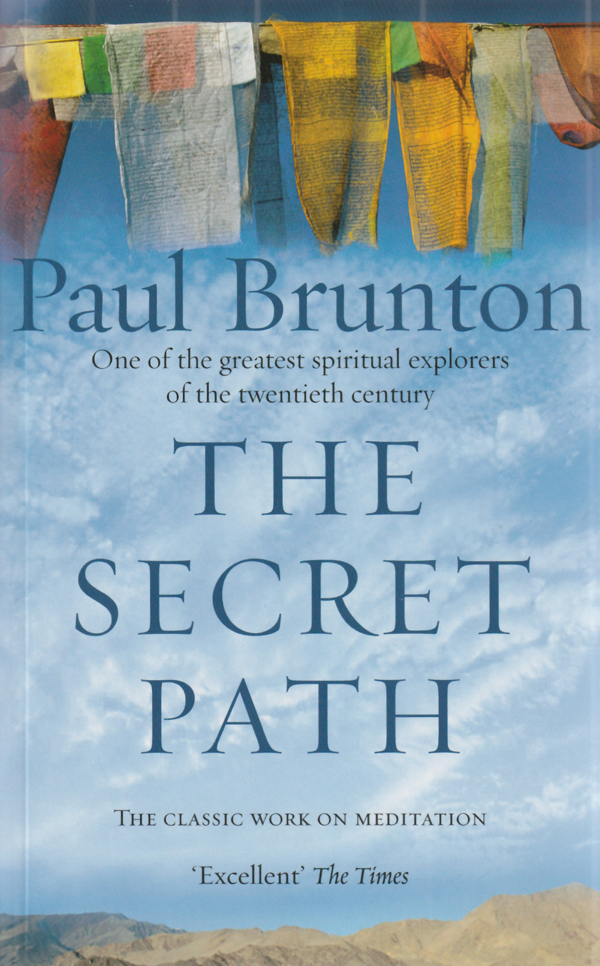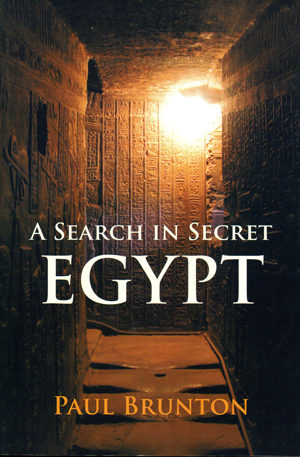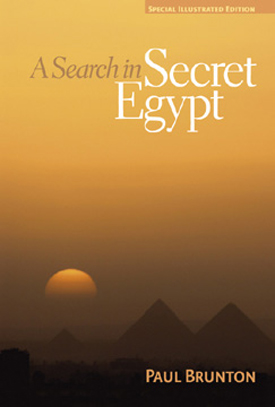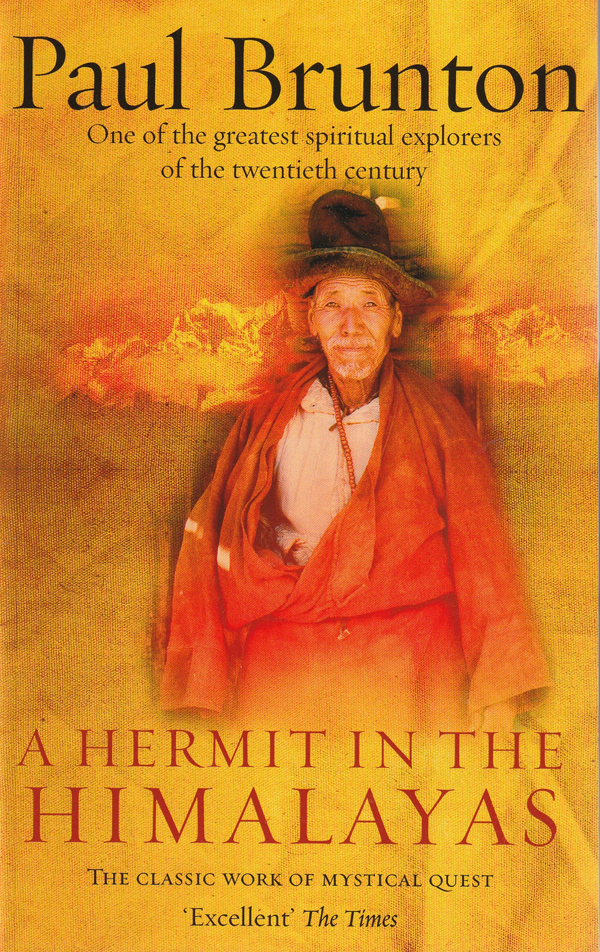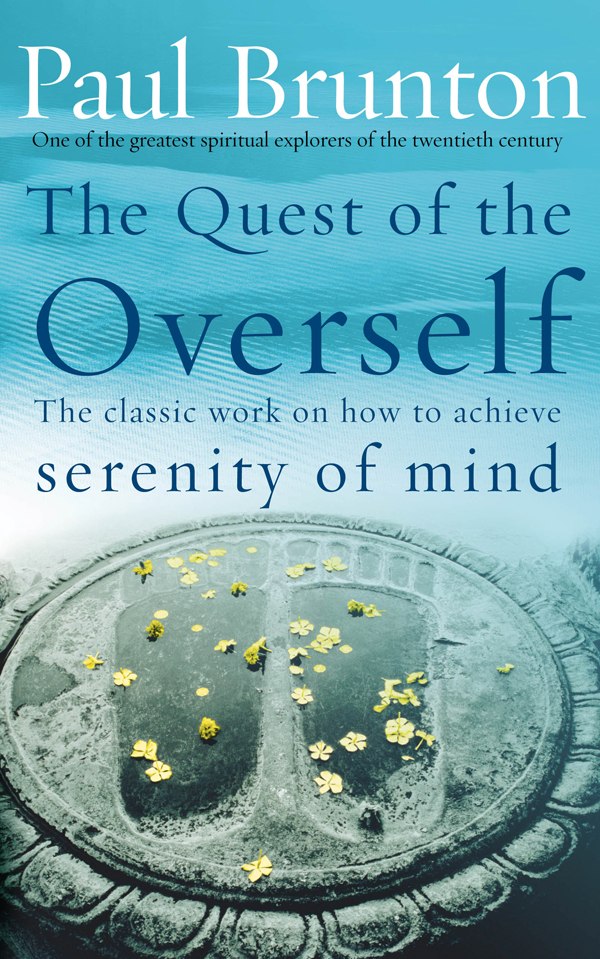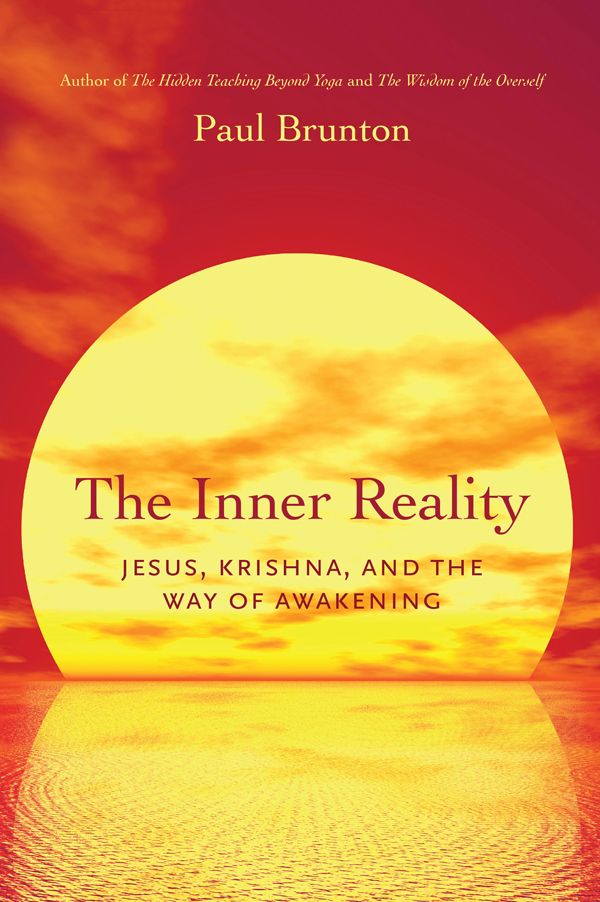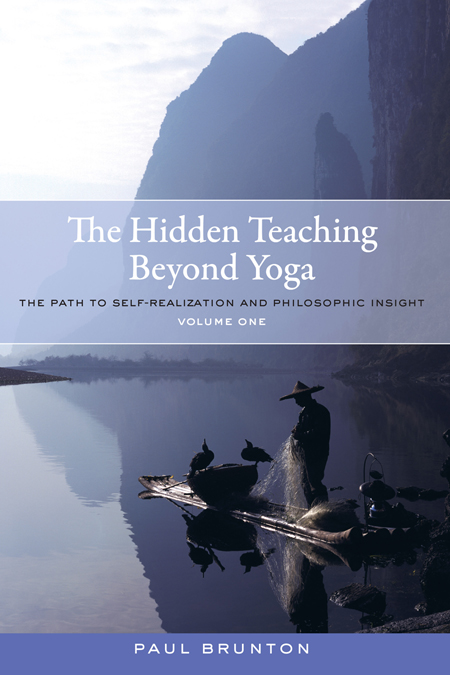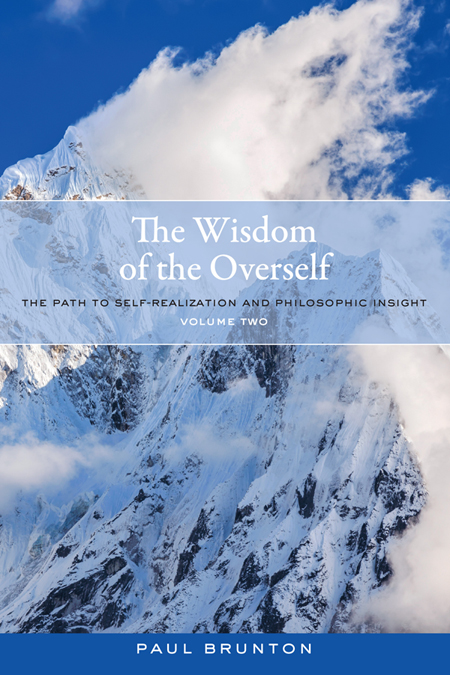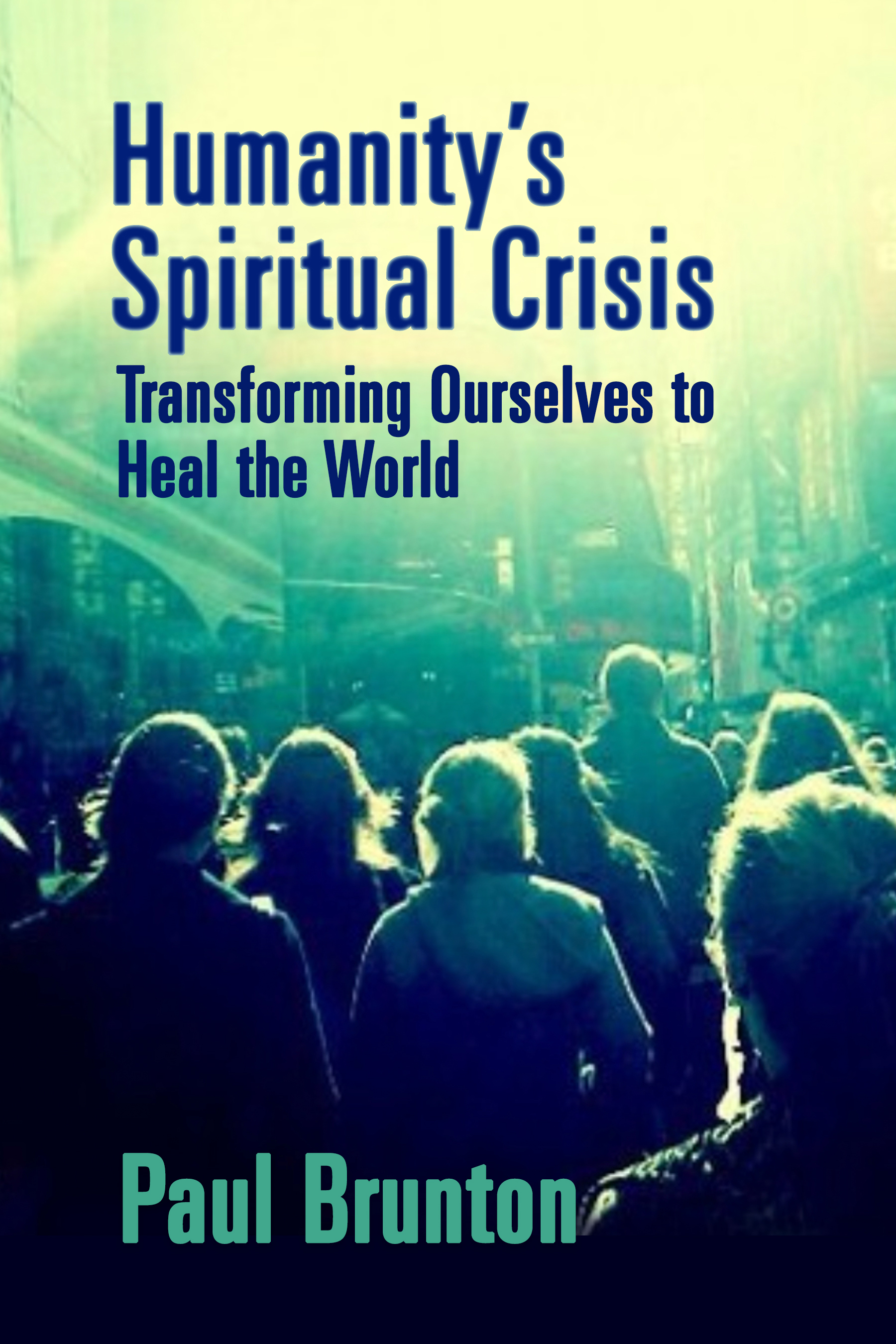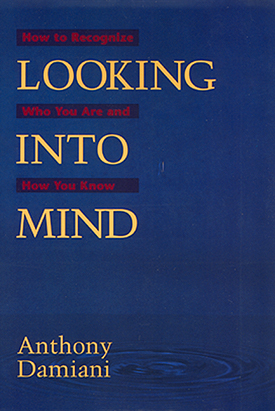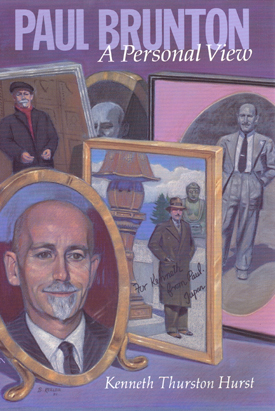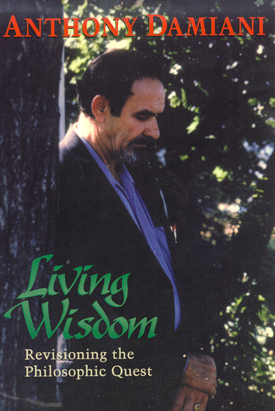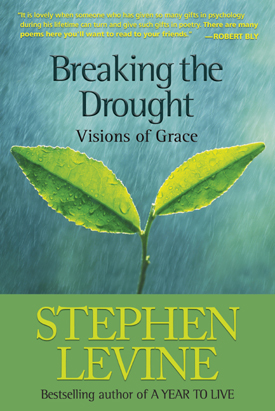The Notebooks of Paul Brunton volume 14
Inspiration and the Overself By Paul Brunton
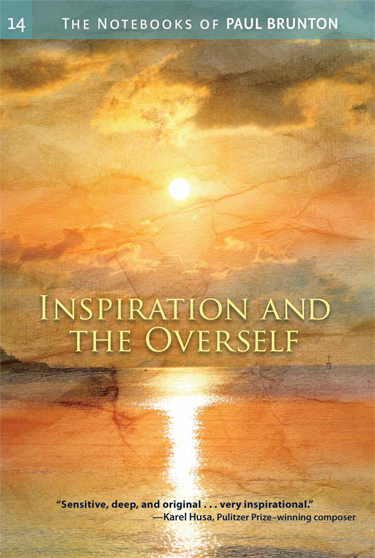
Retail/cover price: $16.95
Our price : $13.56
(You save $3.39!)
About this book:
The Notebooks of Paul Brunton volume 14
Inspiration and the Overself
by Paul Brunton
"If one learns to cultivate these brief intuitive moments aright, there can develop out of them in time mystical moods of much longer duration and much deeper intensity . . . with life-changing results." —Paul Brunton
Subjects: Inspiration, Spirituality
The most loved
volume in the
PB notebooks
5.75 x 8.5, softcover
(hardcover out of stock)
270 pages
ISBN 10: 0-943914-41-8
ISBN 13: 978-0-943914-41-1
Book Details
Nearly everyone has brief moments of exalting communion with his or her own divine Soul and its finest possibilities: This book shows how to make the most of those moments; how to recognize, develop, test, and follow through on intuitions; how to contact the source of inspiration and make its vitalizing power a continuous presence. One of the most poetic and beautiful sections of The Notebooks, it explores the paradoxical nature of the Overself—where our human and divine natures meet and mingle.
Category Twenty-two: INSPIRATION AND THE OVERSELF
INTRODUCTION
1. INTUITION THE BEGINNING
Cultivating, developing intuition
Intuition and pseudo-intuition
Let intuition rule
Fruits of living intuitively
Intuition and the Glimpse
2. INSPIRATION
Its expression and development
As act of Overself
Its power and limitations
The Interior Word
3. THE OVERSELF'S PRESENCE
In each, in all, always
Value, effects of its presence
Toward 'defining' the Overself
Overself and World-Mind
Overself and ego
Central and universal
Responding to critics
4. INTRODUCTION TO MYSTICAL GLIMPSES
Part of natural life-experience
Their importance
Their frequency and duration
Glimpses and Light
5. PREPARING FOR GLIMPSES
How to attract a glimpse
Essentially grace-given
Accepting, cultivating the glimpse
Factors hindering the glimpse
6. EXPERIENCING A GLIMPSE
How a glimpse comes in
Characteristics of glimpses
Overself displaces ego
Revelation, exaltation, confirmation
7. AFTER THE GLIMPSE
Retain the glow
Possible negative after-thoughts
Lasting effects
Marks of authenticity
Following through
8. GLIMPSES AND PERMANENT ILLUMINATION
“. . . a veritable treasure-trove of philosophic-spiritual wisdom.” —Elisabeth Kubler-Ross
“. . . sensible and compelling. His work can stand beside that of such East-West bridges as Merton, Huxley, Suzuki, Watts, and Radhakrishnan. It should appeal to anyone concerned personally and academically with issues of spirituality.” —Choice
“Vigorous, clear-minded and independent . . . a synthesis of Eastern mysticism and Western rationality. . . A rich volume.” —Library Journal
“. . . a great gift to us Westerners who are seeking the spiritual.” —Charles T. Tart
“A person of rare intelligence. . . thoroughly alive, and whole in the most significant, 'holy' sense of the word.” —Yoga Journal
For more reviews of the Notebooks series, click here
Since the fall of 1981, when a working photocopy of Paul Brunton's personal notebooks was first made available in the library of Wisdom's Goldenrod Center for Philosophic Studies, the sections with notes on Inspiration and the Overself have been read more, and with more enthusiasm, than any other section in the Notebooks series. Their remarkable beauty, their rare atmosphere of intimacy with the divine presence, quicken our spiritual vigor and clarity; their practical, simple, and efficacious guidance on how to recognize, cultivate, and make the most of those brief moments of reawakening to our spiritual reality inspires long-range confidence and optimism.
Categories nineteen through twenty-one addressed the limited reliability of sense-knowledge and ordinary reasoning. They concluded with a convincing case for the point of view that the kernel of durable value and intelligent guidance in this purposive game of living is to be discovered directly, in the depths of one's own individual mind. Inspiration and the Overself now sets out to enhance dramatically the conscious relationship between our ordinary selves and that deeper level of our own minds.
Chapter one discusses intuition. Here is a faculty midway between our mundane identity and our true selfhood. It is intrinsically superior to ordinary sense, emotion, and reasoning, yet subject to misinterpretation, distortion, and consequent misapplication. This chapter stresses the importance of developing the intuitive faculty as the beginning of a conscious relationship between the ego and the soul. It also gives important and useful instructions on how to recognize and accept authentic intuitions, how to cultivate, test, and develop them, and how to apply them intelligently as the most reliable source of fruitful conduct in daily living.
Chapter two concerns inspiration — both inspiration in itself and several levels and directions of its operation. Whereas the first chapter emphasizes the knowledge available through intuition, this chapter emphasizes the soul's power to elevate both the ego's consciousness and the level of operation of its developed skills. The chapter's concluding section on the "Interior Word'' discusses the extraordinary power with which specific words and sentences can be charged when the lower mind awakens to this unique faculty of the soul.
Chapter three makes clear that the source of these intuitions and inspirations is one's own best self, the true individuality, which P.B. most frequently calls the Overself. Because it is one's own true self, it is never absent but is always accessible . . . even though usually ignored. This chapter is devoted to awakening us to that constant Presence and inspiring us to make it the conscious context of every detail in our lives.
In this chapter, P.B. insists that we cannot strictly define or even adequately describe in words the total nature of this "Overself.'' How can that which is the ever-prolific source of all our inspired ideas and intelligent actions be encompassed by any single idea, any grouping of ideas or activities that are themselves but memories by the time we finish formulating the definition? Yet this position arose not from a poverty but from an abundance of ideas about and experiences of it — not from a lack of detail but from a wealth of detail.
Dwelling as frequently in early life — and as continuously in his later years — in full consciousness of its Presence as he did, P.B. saw both the validity and the limitations of concepts formed about it through human intellect and feelings. Many writers and teachers on this topic have felt constrained to produce or discover a strict definition or system, which they then spend much of the rest of their lives repeating and defending. They live, consequently, more and more in their memories of and thoughts about an earlier spiritual event whose living presence is increasingly replaced by dogmatism. In contrast, P.B. freely, affirmatively, and emphatically chose to center his attention and identity more in the living Presence itself than in his thoughts about it. This choice meant being reverentially awake to its ongoing mystery and intellectually precise concerning what can be spoken accurately about it. The indomitable mental freedom arising from such a position is the core of what is unique about his account of what he learned through constant attentiveness to its workings within him.
An issue of lively debate among serious students of this "true individuality'' concerns whether it should be described as singular or multiple. Does each individual have his or her own unique Overself, or is the Overself one and the same in every human being? In several places, P.B. addresses the problems involved in planting both feet inflexibly in either camp. In the eighth chapter of The Wisdom of the Overself he wrote, "If there be a slight technical confusion in using the singular number alone, there would be immeasurably more confusion if, in using the plural, this dire error of any radical difference existing between them were to be authenticated.'' For this reason, P.B. chose throughout his later writings to emphasize the oneness of rather than the diversity within the Overself — the sameness of the core of the divine consciousness rather than the variety of its expressions in different individuals. To readers concerned with the details of P.B.'s thought on this technical issue, we recommend — in addition to the present volume — study of The Wisdom of the Overself (especially chapter eight) and Notebooks category twenty-five, World Mind in Individual Mind (in volume 16)
The remaining chapters of Inspiration and the Overself are devoted to attracting, savoring, and following through on moments of authentic spiritual inspiration. It is this material in particular that readers in the Wisdom's Goldenrod library have found specially inspiring and valuable. Its wealth of detail about the what, how, when, and why of spiritual "glimpses,'' permeated by a rich atmosphere of intimate experience and crystal-clear understanding, is both poetically beautiful and uniquely informative. The final chapter, contrasting these ennobling but all-too-fleeting glimpses with the durable goal of philosophic realization, could have come from few other sources.
Editorial conventions here are the same as stated in the introductions to Perspectives and The Quest. Likewise, (P) at the end of a para indicates that it also appears in Perspectives, the introductory volume to this series.
PREFATORY
WHEN HE first faces the mystery which is at the heart's core and in the mind's essence, he knows nothing about it other than that it is the source of his being and that it possesses a power and intelligence utterly transcending his own. Yet he feels that it draws his love and, in his best moments, inspires his character.
HE FEELS the Presence of something higher than himself, wise, noble, beautiful, and worthy of all reverence. Yet it is really himself — the best part come at last into unfoldment and expression.
From chapter 1: INTUITION THE BEGINNING
1
The spiritual nature can only be discovered spiritually — not intellectually, not emotionally, and certainly not physically. Such a spiritual discovery can only be attained intuitively.
2
The mystery into which we have been born is not penetrable by weaving fancy or logical intellect. But intuition, if we are patient enough and willing enough to follow it, can lead us into an overwhelming experience where we discover that IT is there, always there.
3
It is not through any intellectual process of reasoning from premise to conclusion that we come to know we exist, but through an immediate and spontaneous intuition.
4
Intuition moves thought and penetrates feeling, so that it is often mistaken for them. Yet its true nature is something other than both theirs.
5
Intuition is the mind's inner light.
6
Where ego merely believes, intuition definitely knows.
7
There is an intermediate entity, compounded of the ego's best part and the point of contact with the Overself. Call it the higher mind, the conscience, or the intellectual intuition, if you wish.
8
The discovery of its presence makes possible a form of communication between person and Overself which is passive, not active. That is, he is directed guided or corrected in and through his human faculties, intuitively. The person acts, does, thinks, speaks, and decides as if he were doing so completely alone. But he is not: he is responding to the Overself, to the effects of its presence, now unhindered by his ego.
From chapter 3: THE OVERSELF'S PRESENCE
In each, in all, always
1
The spiritual self, the Overself, has never been lost. What has happened is that its being has not been recognized, covered over as it is with a multitude of thoughts, desires, and egocentricities.
2
The day will inexorably come when this pen shall move no more and I wish therefore to leave on record, for the benefit of those who shall come after, a sacred and solemn testimony that I know — as surely as I know that I am not this pen which scribes these lines — that a being, benign, wise, protective, and divine, whom men call the Soul, whom I call the Overself, truly exists in the hearts of all; therefore all may discover it.
A day will break surely when every man will have to bend the knee to that unknown self and abandon every cell of his brain, every flowing molecule of his heart, his blood, into its waiting hands. Though he will fear to do so, though he will fear to give up those ancient idols who had held him in bond so long and have given him so little in return, though he will tremble to loose his moorings and let his soul drift slowly from them with sails set for that mysterious region whose longitude few men know and whose shores most men shun, yet he will do so all the same. For the presence of man's own innermost divinity is the guarantee that he must inescapably seek and find it.
6
Although It is at the very heart of human beings, the Overself is very far from their present level of consciousness. Nothing could be closer yet this is the supreme paradox of our existence and the strangest enigma confronting our thought.
7
The Overself is implicit in all humanity but explicit only in a few solitary figures.
8
Its golden note of harmony falls dead upon our muted ears.
9
The Overself is not a goal to be attained but a realization of what already is. It is the inalienable possession of all conscious beings and not of a mere few. No effort is needed to get hold of the Overself, but every effort is needed to get rid of the many impediments to its recognition. We cannot take hold of it; it takes hold of us. Therefore the last stage of this quest is an effortless one. We are led, as children by the hand, into the resplendent presence. Our weary strivings come to an abrupt end. Our lips are made shut and wordless.
186
Although awareness is the first way in which we can regard the soul or Overself, the latter is also that which makes awareness possible and hence a sub- or super-conscious thing. This explains why it is that we do not know our souls, but only our thoughts, our feelings, and our bodies. It is because we are the soul and hence we are the knower as well as the act of knowing. The eyes see everything outside yet do not see themselves.
187
The Overself is certainly the Way (within man), the Truth (knowing the Real Being), and the Life (applying this knowledge and practising this way in the midst of ordinary everyday activity).
188
We cannot accurately and strictly define the Overself. It is really indescribable, but its effects are not. The feeling of the Overself's presence and the way to awaken it may both be described for the benefit of those who have neither experienced the one nor learned the other.
189
If the Overself could be expressed in words there would be no need for Its silence.
190
We can know the Overself only by being it, not by thinking it. It is beyond thoughts for it is Thought, Pure Mind, itself.
200
This is the "UNDIVIDED MIND" where experience as subject and object, as ego and the world, or as higher self and lower self, does not break consciousness.
206
Let no one imagine that contact with the Overself is a kind of dreamy reverie or pleasant, fanciful state. It is a vital relationship with a current of peace, power, and goodwill flowing endlessly from the invisible centre to the visible self.(P)
From chapter 6: EXPERIENCING A GLIMPSE
How a glimpse comes in
1
These glimpses come at the most unexpected of times and in the most unexpected places. It is not possible to be dogmatic about their appearance and be correct at the same time. Reports have been received which reveal that they may come abruptly during the strain and pressure of business or professional activity, as well as during the relaxation of leisure hours, at the beginning, the middle, and the end of the day, during pleasurable periods or amid great suffering.
2
The Overself's take-over is not always the same but changes with the time and the occasion, the person and the place. It may be gentle, quiet, almost unmarked at first, or it may be like a tremendous force, commanding and irresistible.
3
The experience may come on gently in moods of relaxation or flash abruptly after a period of emotional or intellectual tension.
4
Sometimes he will definitely feel that he is being led into an experience, a mood, or an idea. At other times he may feel himself being drawn inward quite deeply as if the very roots of his egoic being were penetrated; more rarely as if he has been drawn beyond the ego itself.
5
When this consciousness takes hold of a man, it takes him by surprise. Infinity is so utterly different from what he was experiencing a few minutes earlier that its wonder, its truth, its beauty, its love fill him abruptly, as if in descent from the skies.
6
The element of surprise and the delight of novelty are present and give the Glimpse its rapturous turn.
In his own words:
“Writing, which is an exercise of the intellect to some, is an act of worship to me. I rise from my desk in the same mood as that in which I leave an hour of prayer in an old cathedral, or of meditation in a little wood . . .” —from Perspectives, volume 1 in The Notebooks of Paul Brunton, p. 143
“P.B. as a private person does not count. There are hundreds of millions of such persons anyway. What is one man and his quest? P.B.’s personal experiences and views are not of any particular importance or special consequence. What happens to the individual man named P.B. is a matter of no account to anyone except himself. But what happens to the hundreds of thousands of spiritual seekers today who are following the same path that he pioneered is a serious matter and calls for prolonged consideration. Surely the hundreds of thousands of Western seekers who stand behind him and whom indeed, in one sense, he represents, do count. P.B. as a symbol of the scattered group of Western truth-seekers who, by following his writings so increasingly and so eagerly, virtually follow him also, does count. He personifies their aspirations, their repulsion from materialism and attraction toward mysticism, their interest in Oriental wisdom and their shepherdless state. As a symbol of this Western movement of thought, he is vastly greater than himself. In his mind and person the historic need for a new grasp of the contemporary spiritual problem found a plain-speaking voice . . .” —from Perspectives, volume 1 in The Notebooks of Paul Brunton, p. 145
Learn more about Paul Brunton through articles at the Paul Brunton Philosophic Foundation web site
Ebook
Electronic versions of this book are available from all major (Amazon Kindle, Barnes & Noble, Apple, Kobo, etc.) and most smaller ebook vendors. Please don't try to order ebooks directly from us, as we are not yet able to deliver anything to you in a preferred electronic format.
Hardcover
We are currently out of stock of this volume in hardcover.
To see all our Paul Brunton titles, scroll down to The Complete Paul Brunton Opus below.
Click here to see or order the complete set of The Notebooks of Paul Brunton.
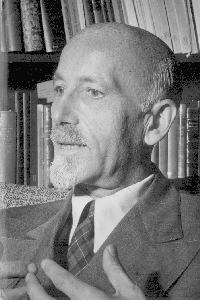
Paul Brunton helps us hear the melody behind the medley of today's "spiritual marketplace." His late writings raise the bar for what we can expect of spiritual teachings and teachers, and what we can do for ourselves. Born in London in 1898, he soon became a leading pioneer of much of what we now take for granted. He traveled widely throughout the world (long before it was fashionable) to meet living masters of various traditions with whom he then lived and studied. His eleven early books from 1934–1952 shared much of what he learned, and helped set the stage for dramatic east-west exchanges of the late 20th century. Paul Brunton left more than 10,000 pages of enormously helpful new work in notebooks he reserved for posthumous publication, much of which is now available as The Notebooks of Paul Brunton. See "The Complete Paul Brunton Opus" in blue below to see his many works available on this site. You can also search on Paul Brunton in the search bar to browse the selections, or click on a link below for specific connections.
Click here for an article about Paul Brunton.
Click here for The Notebooks of Paul Brunton.
To access small theme-based books compiled from Paul Brunton's writings, scroll down to Derived from the Notebooks below.
To access Paul Brunton's early writings, published from 1934–1952, scroll down to Paul Brunton's Early Works below.
To access commentaries on Paul Brunton and his work by his leading student, Anthony Damiani, as well as other writings about Paul Brunton and/or his work, scroll down to Commentaries and Reflections on Paul Brunton and His Work below.
Book Details
Nearly everyone has brief moments of exalting communion with his or her own divine Soul and its finest possibilities: This book shows how to make the most of those moments; how to recognize, develop, test, and follow through on intuitions; how to contact the source of inspiration and make its vitalizing power a continuous presence. One of the most poetic and beautiful sections of The Notebooks, it explores the paradoxical nature of the Overself—where our human and divine natures meet and mingle.
Category Twenty-two: INSPIRATION AND THE OVERSELF
INTRODUCTION
1. INTUITION THE BEGINNING
Cultivating, developing intuition
Intuition and pseudo-intuition
Let intuition rule
Fruits of living intuitively
Intuition and the Glimpse
2. INSPIRATION
Its expression and development
As act of Overself
Its power and limitations
The Interior Word
3. THE OVERSELF'S PRESENCE
In each, in all, always
Value, effects of its presence
Toward 'defining' the Overself
Overself and World-Mind
Overself and ego
Central and universal
Responding to critics
4. INTRODUCTION TO MYSTICAL GLIMPSES
Part of natural life-experience
Their importance
Their frequency and duration
Glimpses and Light
5. PREPARING FOR GLIMPSES
How to attract a glimpse
Essentially grace-given
Accepting, cultivating the glimpse
Factors hindering the glimpse
6. EXPERIENCING A GLIMPSE
How a glimpse comes in
Characteristics of glimpses
Overself displaces ego
Revelation, exaltation, confirmation
7. AFTER THE GLIMPSE
Retain the glow
Possible negative after-thoughts
Lasting effects
Marks of authenticity
Following through
8. GLIMPSES AND PERMANENT ILLUMINATION
“. . . a veritable treasure-trove of philosophic-spiritual wisdom.” —Elisabeth Kubler-Ross
“. . . sensible and compelling. His work can stand beside that of such East-West bridges as Merton, Huxley, Suzuki, Watts, and Radhakrishnan. It should appeal to anyone concerned personally and academically with issues of spirituality.” —Choice
“Vigorous, clear-minded and independent . . . a synthesis of Eastern mysticism and Western rationality. . . A rich volume.” —Library Journal
“. . . a great gift to us Westerners who are seeking the spiritual.” —Charles T. Tart
“A person of rare intelligence. . . thoroughly alive, and whole in the most significant, 'holy' sense of the word.” —Yoga Journal
For more reviews of the Notebooks series, click here
Since the fall of 1981, when a working photocopy of Paul Brunton's personal notebooks was first made available in the library of Wisdom's Goldenrod Center for Philosophic Studies, the sections with notes on Inspiration and the Overself have been read more, and with more enthusiasm, than any other section in the Notebooks series. Their remarkable beauty, their rare atmosphere of intimacy with the divine presence, quicken our spiritual vigor and clarity; their practical, simple, and efficacious guidance on how to recognize, cultivate, and make the most of those brief moments of reawakening to our spiritual reality inspires long-range confidence and optimism.
Categories nineteen through twenty-one addressed the limited reliability of sense-knowledge and ordinary reasoning. They concluded with a convincing case for the point of view that the kernel of durable value and intelligent guidance in this purposive game of living is to be discovered directly, in the depths of one's own individual mind. Inspiration and the Overself now sets out to enhance dramatically the conscious relationship between our ordinary selves and that deeper level of our own minds.
Chapter one discusses intuition. Here is a faculty midway between our mundane identity and our true selfhood. It is intrinsically superior to ordinary sense, emotion, and reasoning, yet subject to misinterpretation, distortion, and consequent misapplication. This chapter stresses the importance of developing the intuitive faculty as the beginning of a conscious relationship between the ego and the soul. It also gives important and useful instructions on how to recognize and accept authentic intuitions, how to cultivate, test, and develop them, and how to apply them intelligently as the most reliable source of fruitful conduct in daily living.
Chapter two concerns inspiration — both inspiration in itself and several levels and directions of its operation. Whereas the first chapter emphasizes the knowledge available through intuition, this chapter emphasizes the soul's power to elevate both the ego's consciousness and the level of operation of its developed skills. The chapter's concluding section on the "Interior Word'' discusses the extraordinary power with which specific words and sentences can be charged when the lower mind awakens to this unique faculty of the soul.
Chapter three makes clear that the source of these intuitions and inspirations is one's own best self, the true individuality, which P.B. most frequently calls the Overself. Because it is one's own true self, it is never absent but is always accessible . . . even though usually ignored. This chapter is devoted to awakening us to that constant Presence and inspiring us to make it the conscious context of every detail in our lives.
In this chapter, P.B. insists that we cannot strictly define or even adequately describe in words the total nature of this "Overself.'' How can that which is the ever-prolific source of all our inspired ideas and intelligent actions be encompassed by any single idea, any grouping of ideas or activities that are themselves but memories by the time we finish formulating the definition? Yet this position arose not from a poverty but from an abundance of ideas about and experiences of it — not from a lack of detail but from a wealth of detail.
Dwelling as frequently in early life — and as continuously in his later years — in full consciousness of its Presence as he did, P.B. saw both the validity and the limitations of concepts formed about it through human intellect and feelings. Many writers and teachers on this topic have felt constrained to produce or discover a strict definition or system, which they then spend much of the rest of their lives repeating and defending. They live, consequently, more and more in their memories of and thoughts about an earlier spiritual event whose living presence is increasingly replaced by dogmatism. In contrast, P.B. freely, affirmatively, and emphatically chose to center his attention and identity more in the living Presence itself than in his thoughts about it. This choice meant being reverentially awake to its ongoing mystery and intellectually precise concerning what can be spoken accurately about it. The indomitable mental freedom arising from such a position is the core of what is unique about his account of what he learned through constant attentiveness to its workings within him.
An issue of lively debate among serious students of this "true individuality'' concerns whether it should be described as singular or multiple. Does each individual have his or her own unique Overself, or is the Overself one and the same in every human being? In several places, P.B. addresses the problems involved in planting both feet inflexibly in either camp. In the eighth chapter of The Wisdom of the Overself he wrote, "If there be a slight technical confusion in using the singular number alone, there would be immeasurably more confusion if, in using the plural, this dire error of any radical difference existing between them were to be authenticated.'' For this reason, P.B. chose throughout his later writings to emphasize the oneness of rather than the diversity within the Overself — the sameness of the core of the divine consciousness rather than the variety of its expressions in different individuals. To readers concerned with the details of P.B.'s thought on this technical issue, we recommend — in addition to the present volume — study of The Wisdom of the Overself (especially chapter eight) and Notebooks category twenty-five, World Mind in Individual Mind (in volume 16)
The remaining chapters of Inspiration and the Overself are devoted to attracting, savoring, and following through on moments of authentic spiritual inspiration. It is this material in particular that readers in the Wisdom's Goldenrod library have found specially inspiring and valuable. Its wealth of detail about the what, how, when, and why of spiritual "glimpses,'' permeated by a rich atmosphere of intimate experience and crystal-clear understanding, is both poetically beautiful and uniquely informative. The final chapter, contrasting these ennobling but all-too-fleeting glimpses with the durable goal of philosophic realization, could have come from few other sources.
Editorial conventions here are the same as stated in the introductions to Perspectives and The Quest. Likewise, (P) at the end of a para indicates that it also appears in Perspectives, the introductory volume to this series.
PREFATORY
WHEN HE first faces the mystery which is at the heart's core and in the mind's essence, he knows nothing about it other than that it is the source of his being and that it possesses a power and intelligence utterly transcending his own. Yet he feels that it draws his love and, in his best moments, inspires his character.
HE FEELS the Presence of something higher than himself, wise, noble, beautiful, and worthy of all reverence. Yet it is really himself — the best part come at last into unfoldment and expression.
From chapter 1: INTUITION THE BEGINNING
1
The spiritual nature can only be discovered spiritually — not intellectually, not emotionally, and certainly not physically. Such a spiritual discovery can only be attained intuitively.
2
The mystery into which we have been born is not penetrable by weaving fancy or logical intellect. But intuition, if we are patient enough and willing enough to follow it, can lead us into an overwhelming experience where we discover that IT is there, always there.
3
It is not through any intellectual process of reasoning from premise to conclusion that we come to know we exist, but through an immediate and spontaneous intuition.
4
Intuition moves thought and penetrates feeling, so that it is often mistaken for them. Yet its true nature is something other than both theirs.
5
Intuition is the mind's inner light.
6
Where ego merely believes, intuition definitely knows.
7
There is an intermediate entity, compounded of the ego's best part and the point of contact with the Overself. Call it the higher mind, the conscience, or the intellectual intuition, if you wish.
8
The discovery of its presence makes possible a form of communication between person and Overself which is passive, not active. That is, he is directed guided or corrected in and through his human faculties, intuitively. The person acts, does, thinks, speaks, and decides as if he were doing so completely alone. But he is not: he is responding to the Overself, to the effects of its presence, now unhindered by his ego.
From chapter 3: THE OVERSELF'S PRESENCE
In each, in all, always
1
The spiritual self, the Overself, has never been lost. What has happened is that its being has not been recognized, covered over as it is with a multitude of thoughts, desires, and egocentricities.
2
The day will inexorably come when this pen shall move no more and I wish therefore to leave on record, for the benefit of those who shall come after, a sacred and solemn testimony that I know — as surely as I know that I am not this pen which scribes these lines — that a being, benign, wise, protective, and divine, whom men call the Soul, whom I call the Overself, truly exists in the hearts of all; therefore all may discover it.
A day will break surely when every man will have to bend the knee to that unknown self and abandon every cell of his brain, every flowing molecule of his heart, his blood, into its waiting hands. Though he will fear to do so, though he will fear to give up those ancient idols who had held him in bond so long and have given him so little in return, though he will tremble to loose his moorings and let his soul drift slowly from them with sails set for that mysterious region whose longitude few men know and whose shores most men shun, yet he will do so all the same. For the presence of man's own innermost divinity is the guarantee that he must inescapably seek and find it.
6
Although It is at the very heart of human beings, the Overself is very far from their present level of consciousness. Nothing could be closer yet this is the supreme paradox of our existence and the strangest enigma confronting our thought.
7
The Overself is implicit in all humanity but explicit only in a few solitary figures.
8
Its golden note of harmony falls dead upon our muted ears.
9
The Overself is not a goal to be attained but a realization of what already is. It is the inalienable possession of all conscious beings and not of a mere few. No effort is needed to get hold of the Overself, but every effort is needed to get rid of the many impediments to its recognition. We cannot take hold of it; it takes hold of us. Therefore the last stage of this quest is an effortless one. We are led, as children by the hand, into the resplendent presence. Our weary strivings come to an abrupt end. Our lips are made shut and wordless.
186
Although awareness is the first way in which we can regard the soul or Overself, the latter is also that which makes awareness possible and hence a sub- or super-conscious thing. This explains why it is that we do not know our souls, but only our thoughts, our feelings, and our bodies. It is because we are the soul and hence we are the knower as well as the act of knowing. The eyes see everything outside yet do not see themselves.
187
The Overself is certainly the Way (within man), the Truth (knowing the Real Being), and the Life (applying this knowledge and practising this way in the midst of ordinary everyday activity).
188
We cannot accurately and strictly define the Overself. It is really indescribable, but its effects are not. The feeling of the Overself's presence and the way to awaken it may both be described for the benefit of those who have neither experienced the one nor learned the other.
189
If the Overself could be expressed in words there would be no need for Its silence.
190
We can know the Overself only by being it, not by thinking it. It is beyond thoughts for it is Thought, Pure Mind, itself.
200
This is the "UNDIVIDED MIND" where experience as subject and object, as ego and the world, or as higher self and lower self, does not break consciousness.
206
Let no one imagine that contact with the Overself is a kind of dreamy reverie or pleasant, fanciful state. It is a vital relationship with a current of peace, power, and goodwill flowing endlessly from the invisible centre to the visible self.(P)
From chapter 6: EXPERIENCING A GLIMPSE
How a glimpse comes in
1
These glimpses come at the most unexpected of times and in the most unexpected places. It is not possible to be dogmatic about their appearance and be correct at the same time. Reports have been received which reveal that they may come abruptly during the strain and pressure of business or professional activity, as well as during the relaxation of leisure hours, at the beginning, the middle, and the end of the day, during pleasurable periods or amid great suffering.
2
The Overself's take-over is not always the same but changes with the time and the occasion, the person and the place. It may be gentle, quiet, almost unmarked at first, or it may be like a tremendous force, commanding and irresistible.
3
The experience may come on gently in moods of relaxation or flash abruptly after a period of emotional or intellectual tension.
4
Sometimes he will definitely feel that he is being led into an experience, a mood, or an idea. At other times he may feel himself being drawn inward quite deeply as if the very roots of his egoic being were penetrated; more rarely as if he has been drawn beyond the ego itself.
5
When this consciousness takes hold of a man, it takes him by surprise. Infinity is so utterly different from what he was experiencing a few minutes earlier that its wonder, its truth, its beauty, its love fill him abruptly, as if in descent from the skies.
6
The element of surprise and the delight of novelty are present and give the Glimpse its rapturous turn.
In his own words:
“Writing, which is an exercise of the intellect to some, is an act of worship to me. I rise from my desk in the same mood as that in which I leave an hour of prayer in an old cathedral, or of meditation in a little wood . . .” —from Perspectives, volume 1 in The Notebooks of Paul Brunton, p. 143
“P.B. as a private person does not count. There are hundreds of millions of such persons anyway. What is one man and his quest? P.B.’s personal experiences and views are not of any particular importance or special consequence. What happens to the individual man named P.B. is a matter of no account to anyone except himself. But what happens to the hundreds of thousands of spiritual seekers today who are following the same path that he pioneered is a serious matter and calls for prolonged consideration. Surely the hundreds of thousands of Western seekers who stand behind him and whom indeed, in one sense, he represents, do count. P.B. as a symbol of the scattered group of Western truth-seekers who, by following his writings so increasingly and so eagerly, virtually follow him also, does count. He personifies their aspirations, their repulsion from materialism and attraction toward mysticism, their interest in Oriental wisdom and their shepherdless state. As a symbol of this Western movement of thought, he is vastly greater than himself. In his mind and person the historic need for a new grasp of the contemporary spiritual problem found a plain-speaking voice . . .” —from Perspectives, volume 1 in The Notebooks of Paul Brunton, p. 145
Learn more about Paul Brunton through articles at the Paul Brunton Philosophic Foundation web site
Ebook
Electronic versions of this book are available from all major (Amazon Kindle, Barnes & Noble, Apple, Kobo, etc.) and most smaller ebook vendors. Please don't try to order ebooks directly from us, as we are not yet able to deliver anything to you in a preferred electronic format.
Hardcover
We are currently out of stock of this volume in hardcover.
To see all our Paul Brunton titles, scroll down to The Complete Paul Brunton Opus below.
Click here to see or order the complete set of The Notebooks of Paul Brunton.
About Paul Brunton

Paul Brunton helps us hear the melody behind the medley of today's "spiritual marketplace." His late writings raise the bar for what we can expect of spiritual teachings and teachers, and what we can do for ourselves. Born in London in 1898, he soon became a leading pioneer of much of what we now take for granted. He traveled widely throughout the world (long before it was fashionable) to meet living masters of various traditions with whom he then lived and studied. His eleven early books from 1934–1952 shared much of what he learned, and helped set the stage for dramatic east-west exchanges of the late 20th century. Paul Brunton left more than 10,000 pages of enormously helpful new work in notebooks he reserved for posthumous publication, much of which is now available as The Notebooks of Paul Brunton. See "The Complete Paul Brunton Opus" in blue below to see his many works available on this site. You can also search on Paul Brunton in the search bar to browse the selections, or click on a link below for specific connections.
Click here for an article about Paul Brunton.
Click here for The Notebooks of Paul Brunton.
To access small theme-based books compiled from Paul Brunton's writings, scroll down to Derived from the Notebooks below.
To access Paul Brunton's early writings, published from 1934–1952, scroll down to Paul Brunton's Early Works below.
To access commentaries on Paul Brunton and his work by his leading student, Anthony Damiani, as well as other writings about Paul Brunton and/or his work, scroll down to Commentaries and Reflections on Paul Brunton and His Work below.
The Complete Paul Brunton Opus:
Paul Brunton's most mature work, in the order he specified for posthumous publication.
Smaller books on popular/timely themes, developed from the Notebooks and published posthumously.
Paul Brunton's works published during his lifetime from 1934-1952
Commentaries/Reflections by other authors on Paul Brunton or his works.

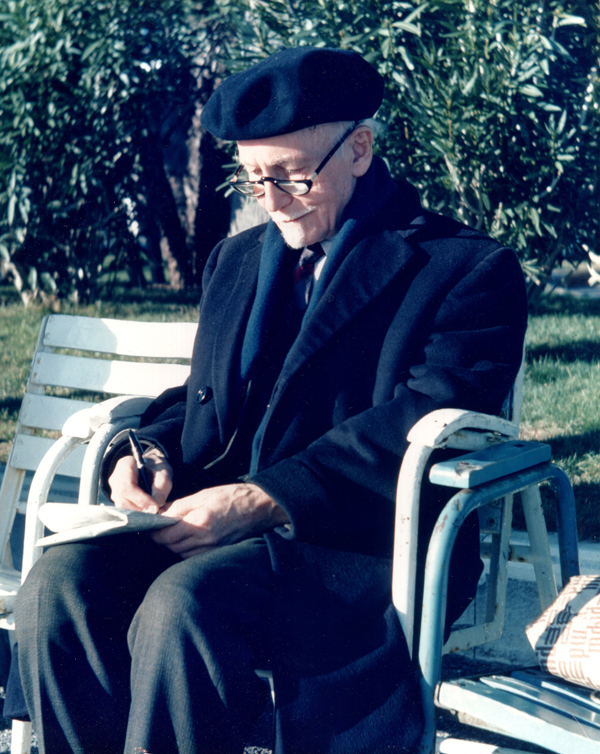
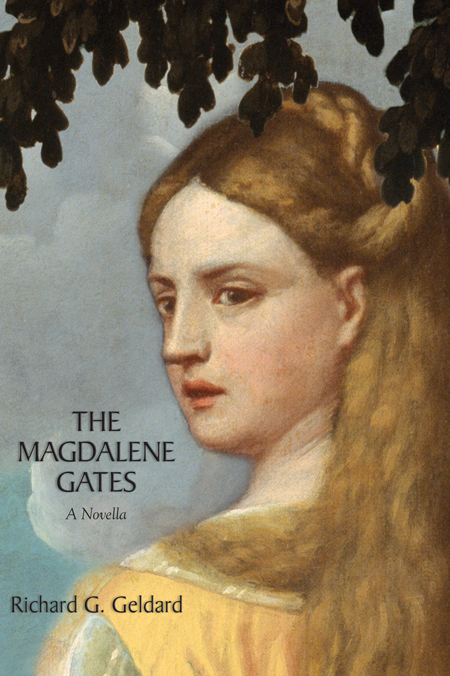
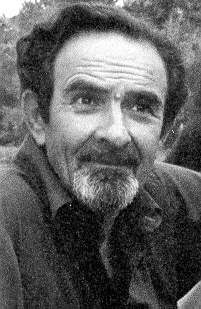


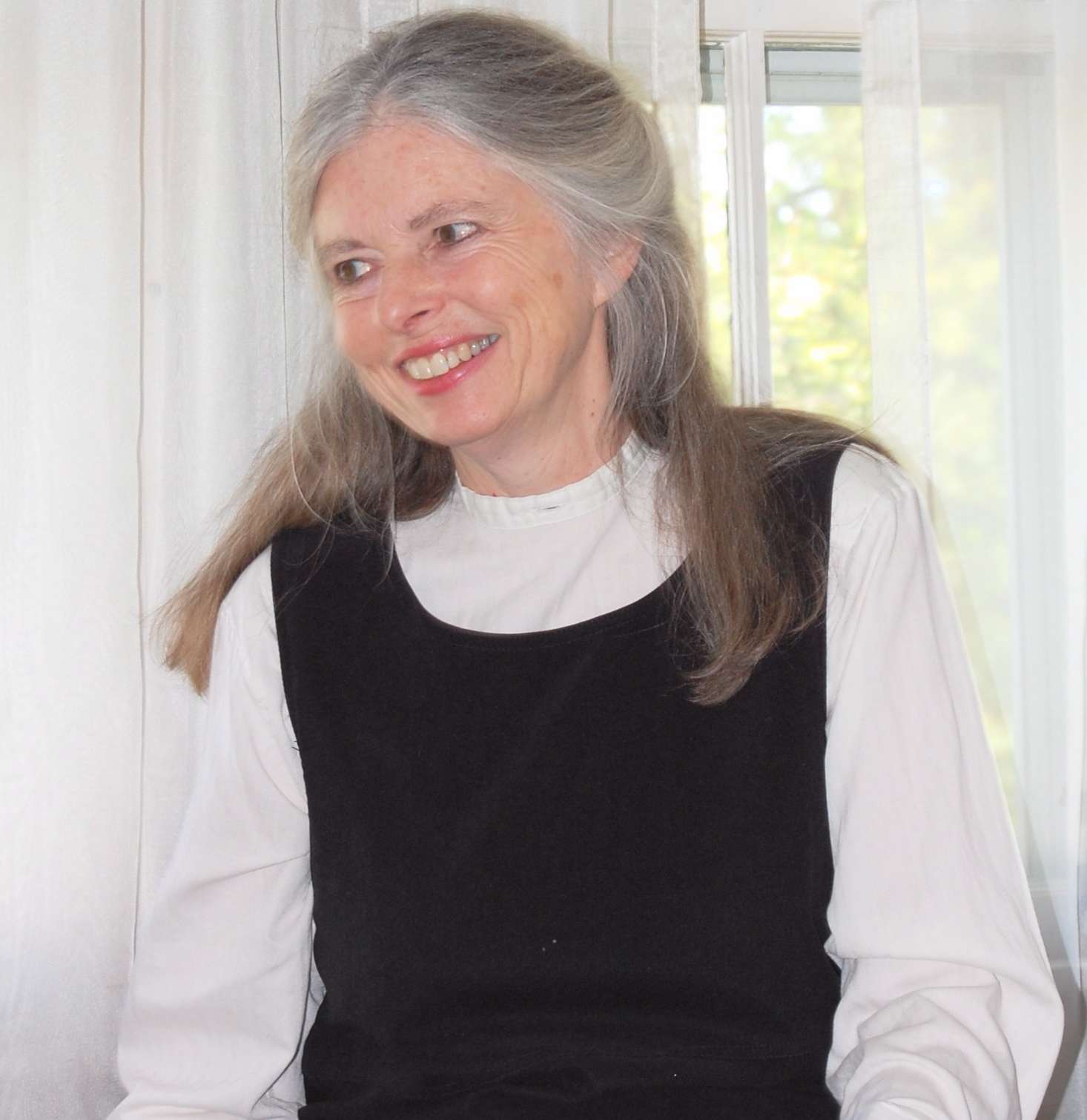
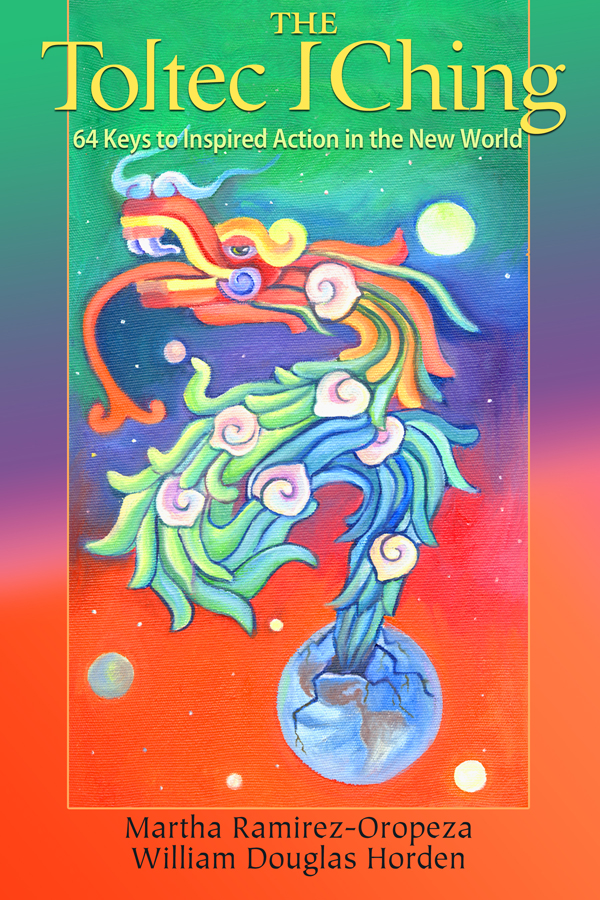
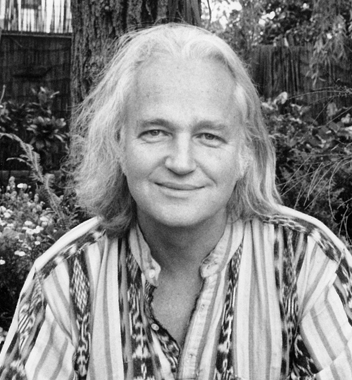
.jpg)
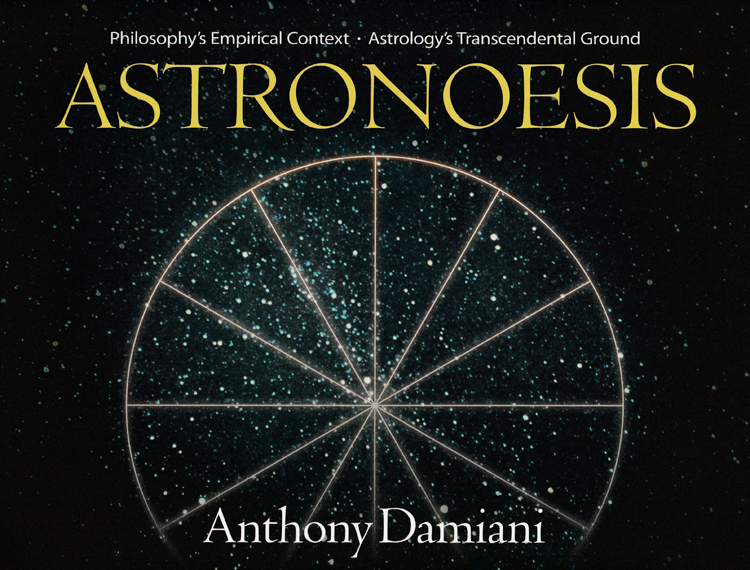
.jpg)
.jpg)
.jpg)
.jpg)
.jpg)
.jpg)
.jpg)
.jpg)
.jpg)
.jpg)
